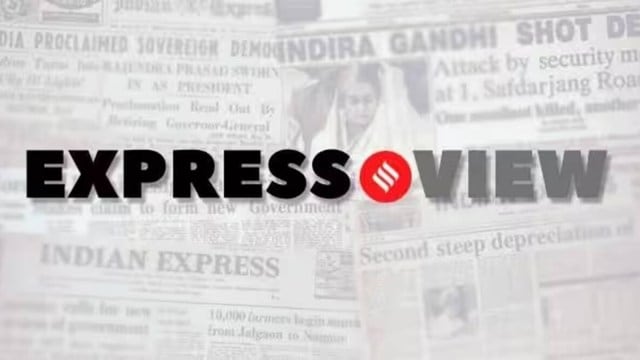
That the BJP is undertaking a review of its electoral setbacks in Uttar Pradesh, as reported by this newspaper, where its tally dipped to 33 from 62 in 2019, and where it lost both the prestigious Ayodhya (Faizabad) and Amethi seats, is good news — for the BJP. Done honestly, a probing look back could help it understand what went wrong and what it can do to get back on its feet in the politically crucial state. For the rest, however, far more consequential is how this internal nuts-and-bolts exercise informs the party’s larger reading of the mandate and how that translates, going ahead, in its government’s politics and policy. The fact is, Verdict 2024 is complex, not given to glib readings. The people of India have rebuked the incumbent but returned it to power, in a more edgy coalition — they have given the Opposition alliance a stronger voice, not a shot at forming the government. In reading the verdict, the temptation for the BJP will be to see its new dependence on allies as a constraint it must find ways to somehow sidestep and overcome in coming days. If it is to respect the mandate, however, its real challenge will be to acknowledge that for the third-term NDA, there is no going back to many of its old ways.
Since 2014, when the BJP became the first party in nearly three decades to win a majority, it had seemed that a new era of one-party dominance was here to stay, with one change — the BJP had replaced a Congress in-free-fall as its centrepiece. Its decade-long singularity under Narendra Modi’s leadership had also meant that the party and its leader got accustomed to habits of centralised decision-making. Its serial electoral successes were read as the people’s whole-hearted affirmation of its policies and governance vision. Now, the searchlight must be turned on many of these certitudes. Allies will need to be consulted not just because they can bring the government down in the last instance, but because their voices and ways of seeing can bring different perspectives and diverse concerns into the frame. The Modi government must also re-look at governance paradigms that it may have been taking for granted so far. It has had great success, for instance, in the public provisioning of private goods through its welfare schemes. The verdict may mean that the time has now come for it to take the next step — it must improve the quality of public goods, especially and above all, education and health, that are most critical for upward mobility and employment in a nation of the young.
The aam aurat is not satisfied with governance-as-usual and that is the core of the verdict’s message. As it prepares for the convening of the new Lok Sabha next week, and for crucial assembly elections a few months away, the BJP must know that assurances of continuity and stability won’t be enough. The onus of change is also on it.
© The Indian Express Pvt Ltd
First uploaded on: 20-06-2024 at 08:05 IST

